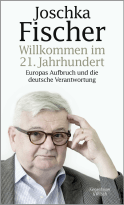When, on the orders of Vladimir Putin, Russian troops invaded Ukraine, it wasn’t just Europe that was changed, but the entire world order: war had returned to Europe – a war over borders, power, and authority.
In the Middle East, Hamas’ attack on Israel has shown how explosive protracted, sometimes age-old, territorial conflicts – such as the one over Palestine – can be and what global impact they have.
Add to this Beijing’s threats against Taiwan, and it’s easy to see how unstable and volatile the global situation has become. Meanwhile, the Global South is increasingly demanding its right to have a voice and to participate. New alliances are emerging outside and beyond the West, which sees itself as increasingly isolated and is losing importance on the global political stage while grappling with powerful nationalist and anti-democratic movements within Europe and the United States. What will ultimately become of Europe if the US turns its back on its transatlantic commitments after the recent presidential election?
Former German Foreign Minister Joschka Fischer outlines the key features of this emerging new order and highlights the threats and challenges it poses to both German and European politics.







